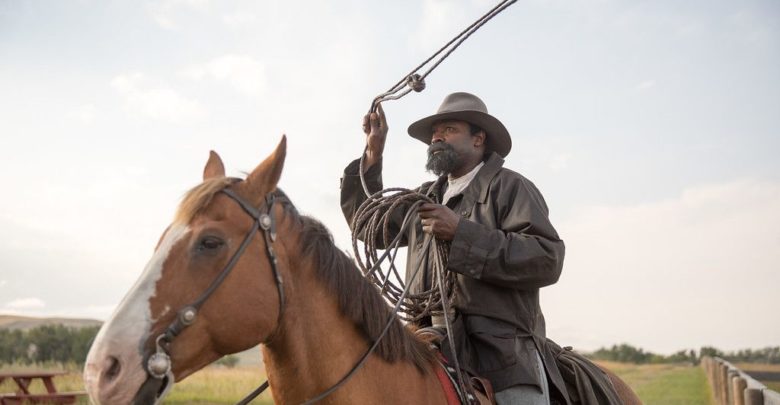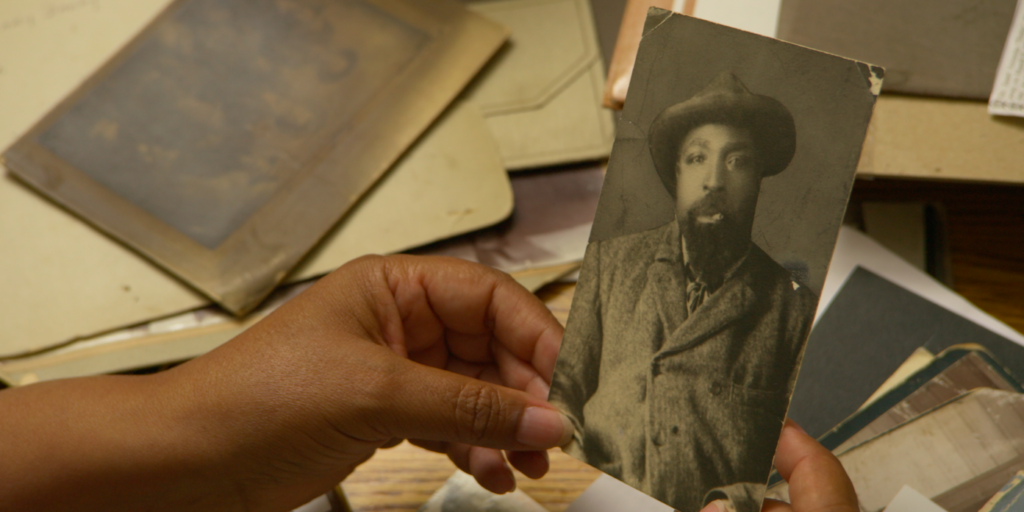“Leaving a legacy”: Q&A with filmmaker Cheryl Foggo on “John Ware: Reclaimed”
Foggo aims to retell the story of the prolific Black Albertan cowboy
 John Ware Reclaimed
John Ware ReclaimedWhen it comes to unpacking the legacy of John Ware, an iconic Black cowboy and rancher who made Alberta his home in the late 19th century, it is often hard to separate fact from fiction. However, a new documentary is going to change that.
Cheryl Foggo is a prolific author, historian, director, and screenwriter who has chronicled the lives of Western Canadians of African descent for decades, and in her new feature-length documentary John Ware: Reclaimed she uncovers the legacy of the legendary Albertan.
Combining music, interviews, archival footage, and striking tableaus, and featuring rodeo champion Fred Whitfield portraying John Ware, the film recounts the impact of Ware’s legacy, particularly for Black Albertans.
The film documents Ware’s life as well as the archival and artistic journey Foggo embarked on while exploring the man by behind the myth. Foggo delves into her own family history and the experiences of Black Albertans who share connections to Ware. The film also challenges much of the previous historical record surrounding Ware, which until recently remained a narrow, tokenized narrative.
The Gateway was able to speak with Cheryl Foggo about the film, her personal connection to John Ware, and what she hopes the audience discovers.
Responses were edited for brevity and clarity.
The Gateway: How did you decide on John Ware as somebody to focus on, and then how did you subsequently decide on how to share his story?
As I have moved through my life in Alberta, I have recognized a huge gap where the stories of Black Western Canada should be and have not been in the past, and what stories there were often were told through a lens that I thought didn’t really capture who we are from the inside. John Ware was a figure that I was very interested in as a storyteller because his story had so many parallels to my own ancestral story, which I was very very eager to create a public record of as it was completely lacking. We never studied about my community when we talked about history or settlement or geography in Alberta.
When it came time to choose how I wanted to tell his story that was very difficult, but pretty early on I made the decision that the film would tell the story through my journey of discovery. I had found that people often either think they are not interested in history or they actually aren’t interested in history because they think it doesn’t matter. They think it’s in the past and the past has nothing to do with who we are today. That is so wrong, and the past has everything to do with who we are today. I wanted to present a person who’s living and breathing now in the world, as a way of helping the story feel more relevant to people in a contemporary setting.

What would you like viewers to take away from the film as they’re watching it, both about John Ware’s story and about history?
I was trying to make a film for all Canadians, but I knew it might have special resonance for people of African descent or racialized people, or people who are interested in history and feel empowered by hearing this story that they’re not familiar with.
I wanted one of the takeaways to be one of the things you mentioned, which is the beauty of the landscape, the beauty of [Ware’s] life, and just to be able to feel like you were there with him in his world. I wanted people to have a better understanding of Black history in Western Canada and to make the connections between John Ware’s time and the time of my ancestors’ arrival. I wanted people to understand that John Ware was not an anomaly, he was not this lone figure of Blackness.
There’s this lie that gets maintained that there is no racism in Canada or that Canada is not as bad as the United States. Despite that being evidently false, why do you think that view sticks around in spite of all we know?
I don’t know why I get asked that question a lot, and all I can do is ask it back. It’s a conversation that we all have to have, because of course I’m not responsible for that dynamic. I’ve been out here for 30 years telling a different story. You even have to ask, why is it that so few Albertans are familiar with my work? I guess it is a question that I would ask back of people, of your readers, of everybody.
I also am very curious about that metric of comparing to the United States. Why does that happen? What does that have to do with anything when we’re talking about racism? Why do people think that comparing it to another place is an appropriate metric? Why aren’t we just addressing what is happening [here] and what has happened? It is a very curious dynamic and I don’t have the answers, but that’s a question that Canadians really need to reckon with.
This is totally a speculative question, but what do you imagine or hope John Ware would think or say about the film?
Of course I hope that he would appreciate my deep respect and reverence for the story and for him. I hope he would feel that I was fair and accurate. Very few people know in their lifetimes that they’re going to be remembered. He simply never would have dreamed that 115 years after his death there would be this medium which he couldn’t even have imagined in his lifetime that would tell his story. I don’t think he lived his life with the intention of leaving a legacy or being remembered. It’s intimidating for people to contemplate that that might happen.




